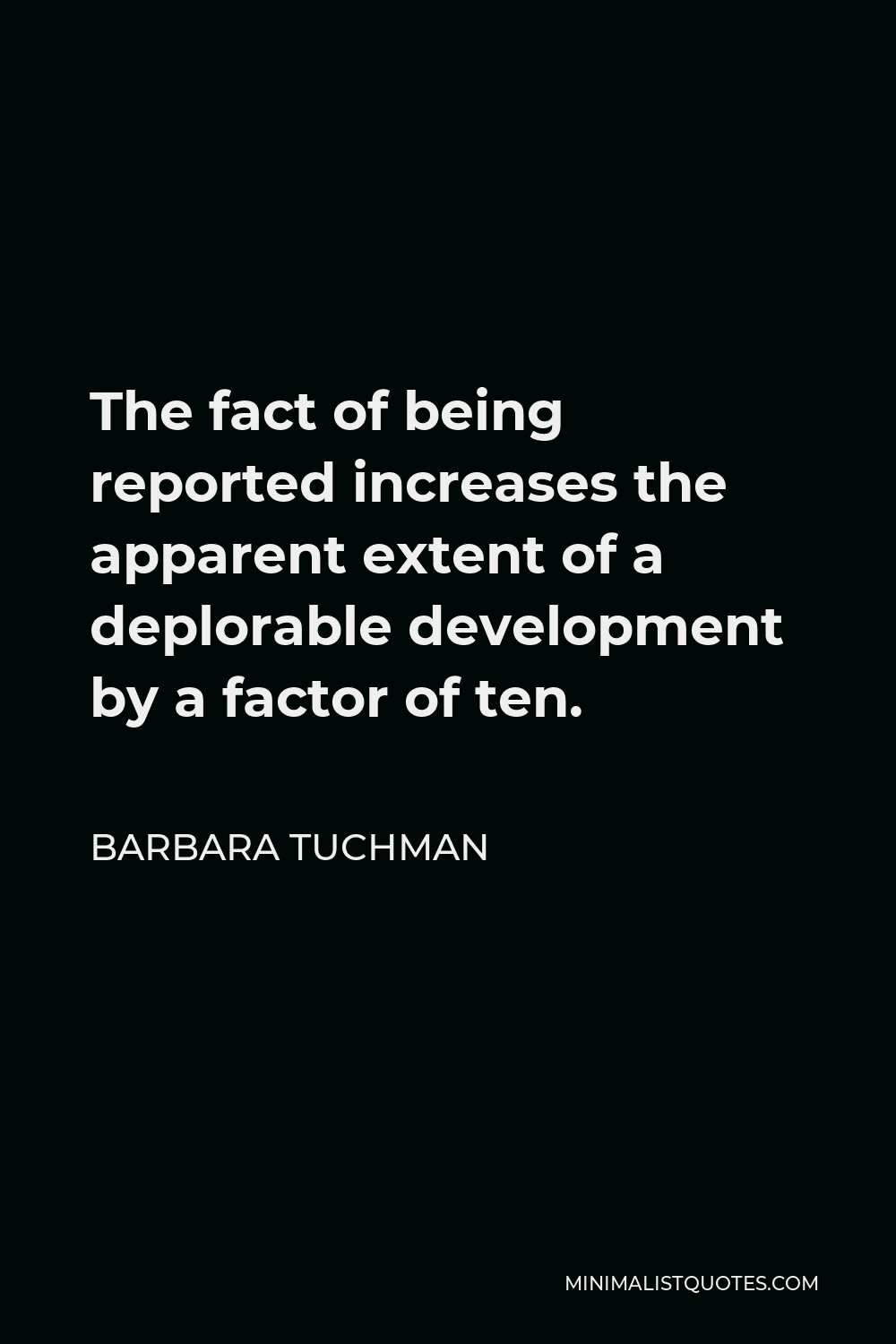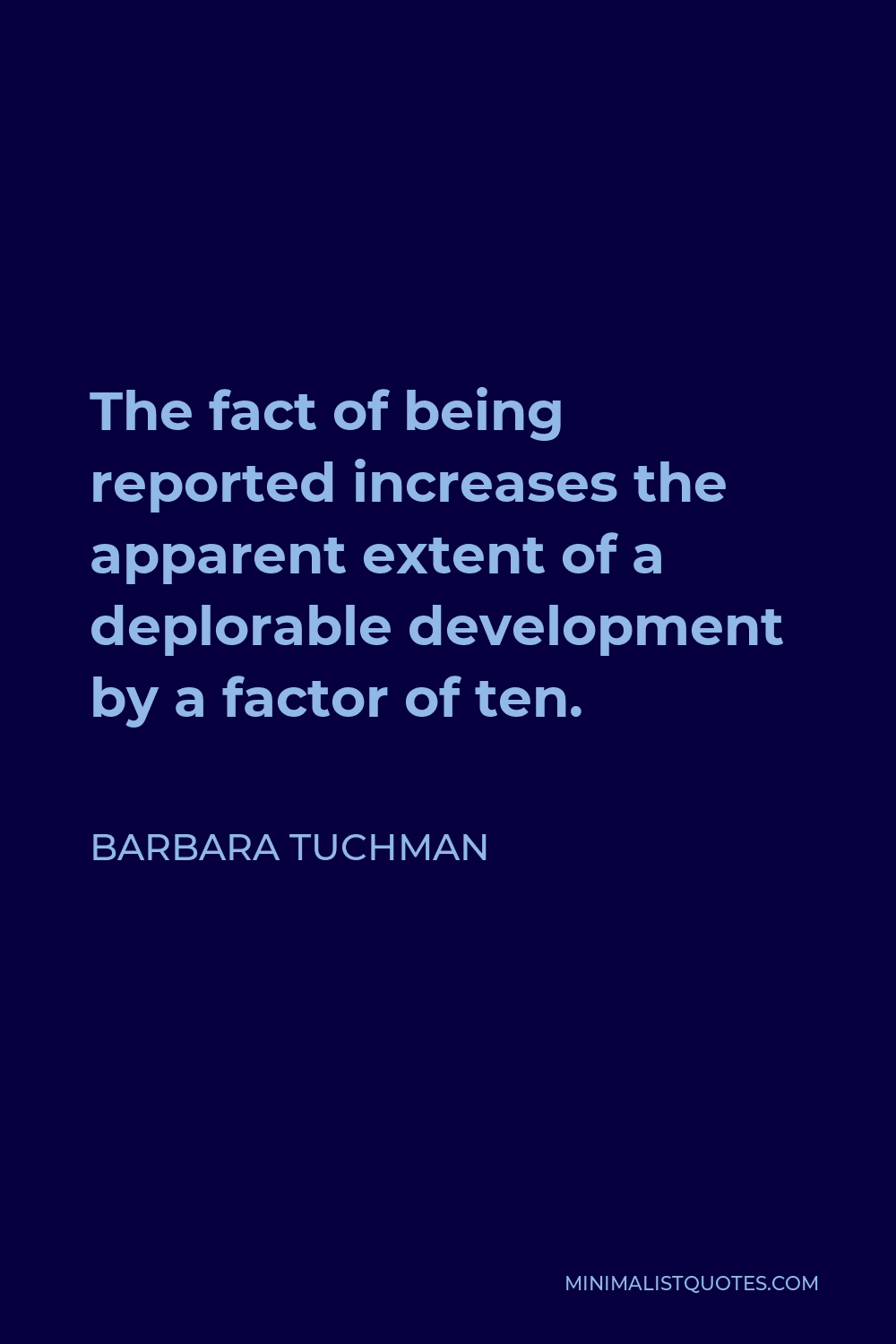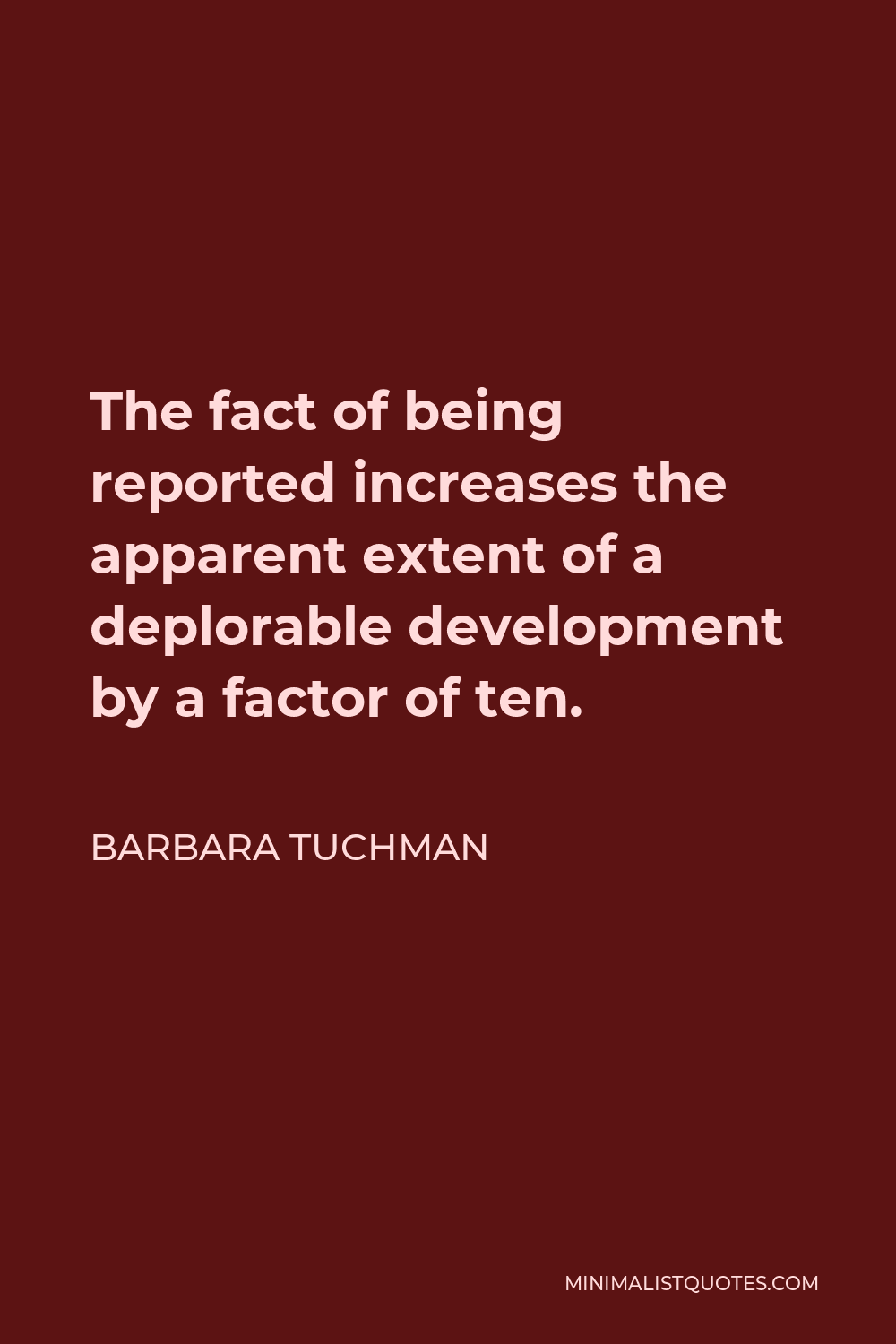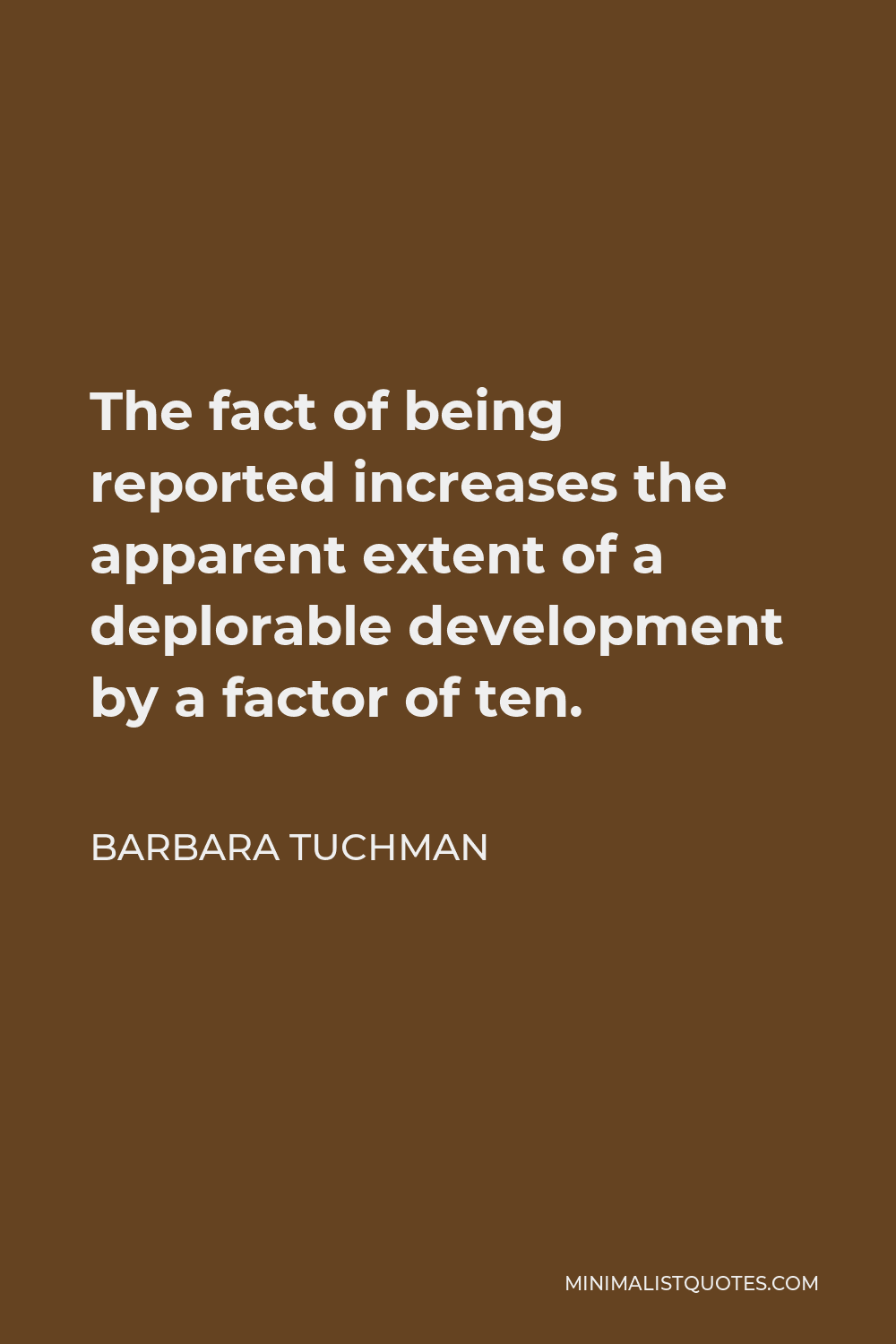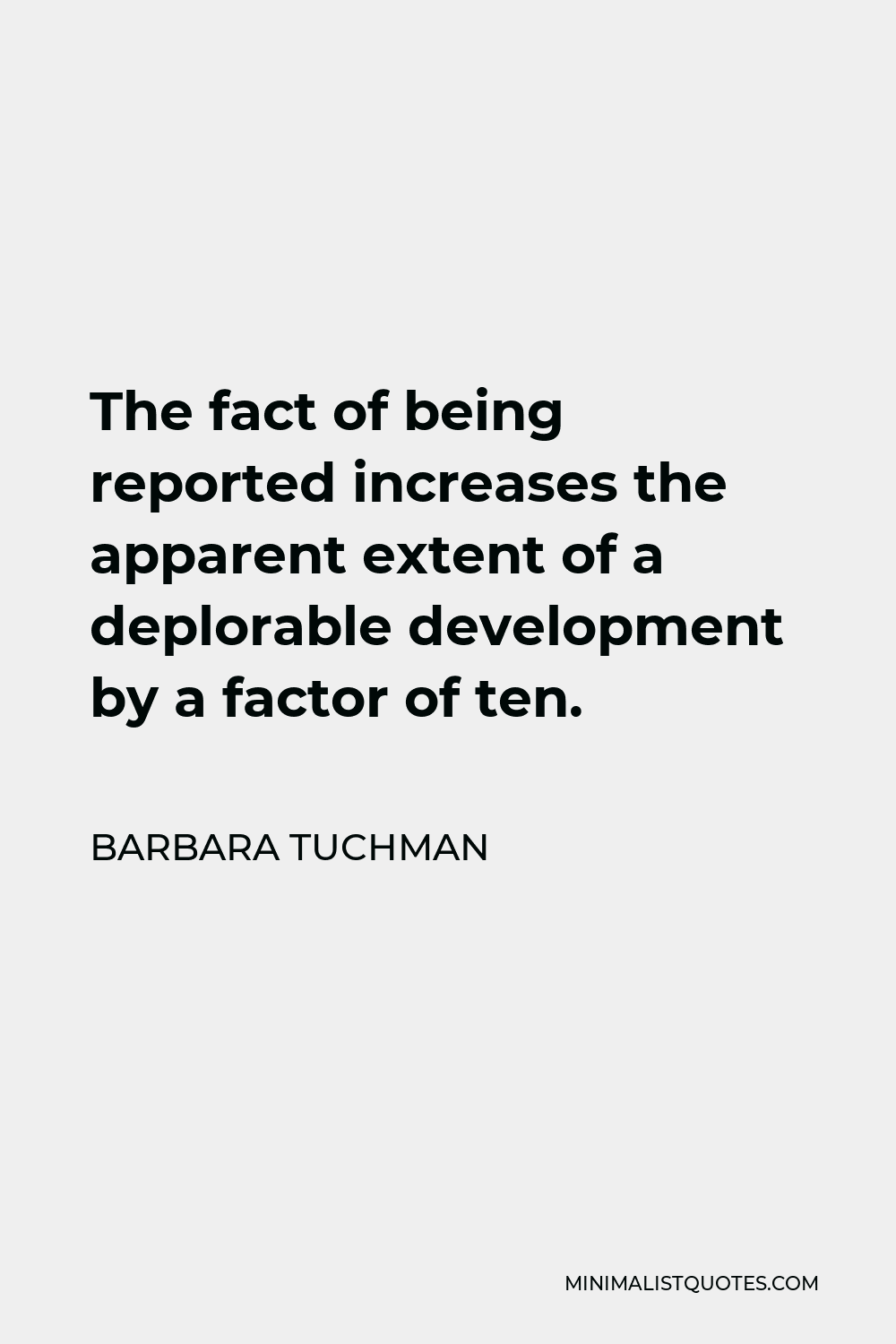bureaucracy, safely repeating today what it did yesterday, rolls on as ineluctably as some vast computer, which, once penetrated by error, duplicates it forever.
BARBARA TUCHMANThe fact of being reported increases the apparent extent of a deplorable development by a factor of ten.
More Barbara Tuchman Quotes
-







-







Governments do not like to face radical remedies; it is easier to let politics predominate.
BARBARA TUCHMAN -







Learning from experience is a faculty almost never practiced
BARBARA TUCHMAN -







Historians who stuff in every item of research they have found, every shoelace and telephone call of a biographical subject, are not doing the hard work of selecting and shaping a readable story.
BARBARA TUCHMAN -





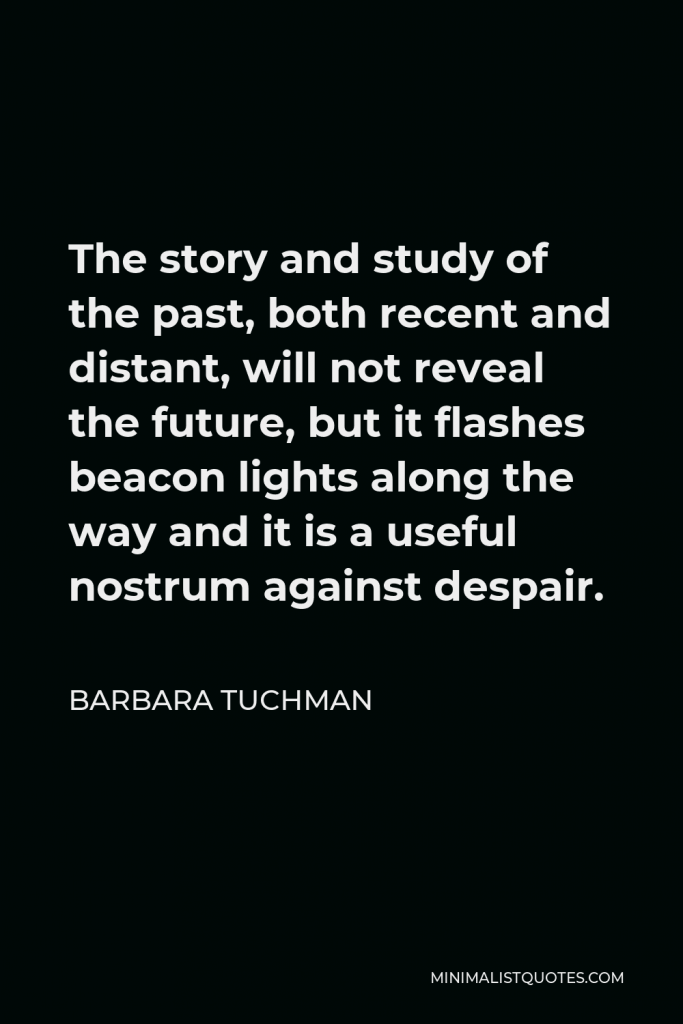

The story and study of the past, both recent and distant, will not reveal the future, but it flashes beacon lights along the way and it is a useful nostrum against despair.
BARBARA TUCHMAN -







Arguments can always be found to turn desire into policy.
BARBARA TUCHMAN -







Strong prejudices in an ill-formed mind are hazardous to government, and when combined with a position of power even more so.
BARBARA TUCHMAN -







To put on the garment of legitimacy is the first aim of every coup.
BARBARA TUCHMAN -





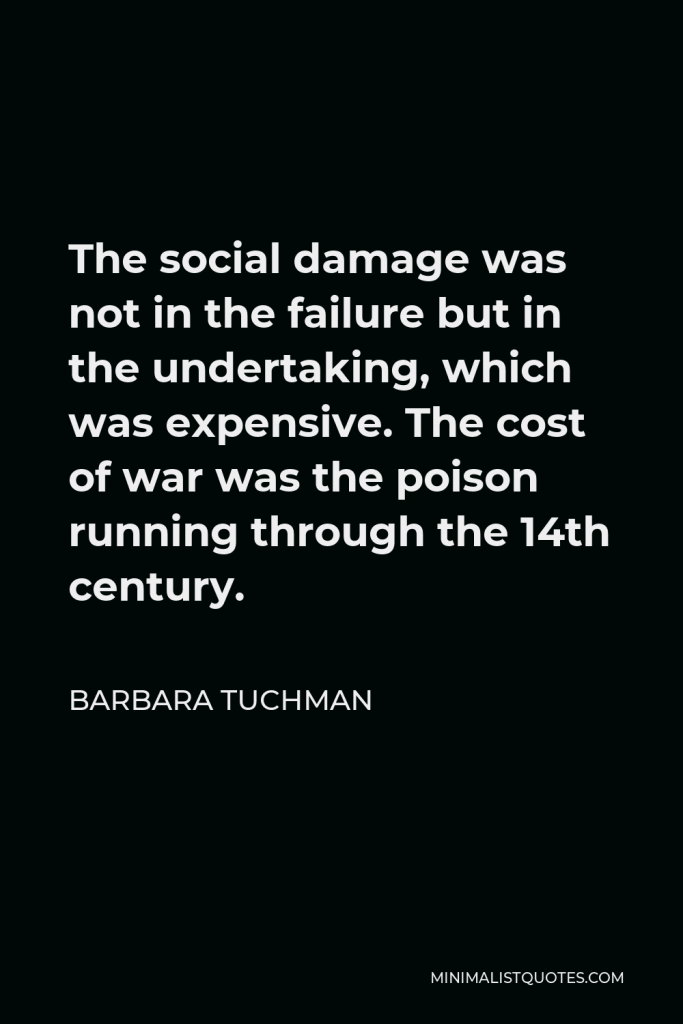

The social damage was not in the failure but in the undertaking, which was expensive. The cost of war was the poison running through the 14th century.
BARBARA TUCHMAN -





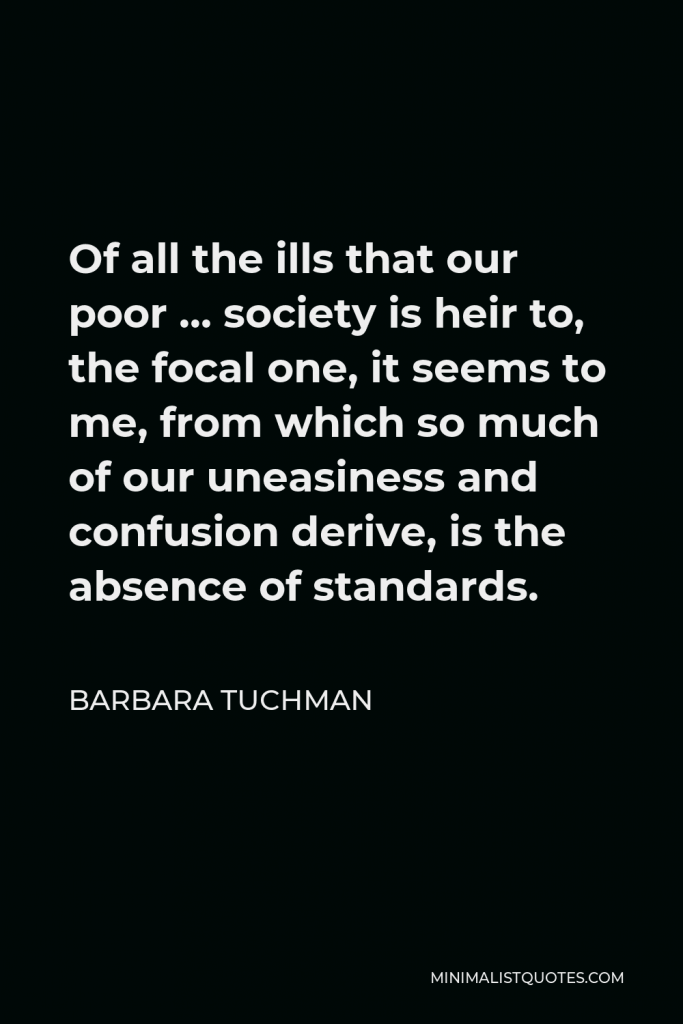

Of all the ills that our poor … society is heir to, the focal one, it seems to me, from which so much of our uneasiness and confusion derive, is the absence of standards.
BARBARA TUCHMAN -





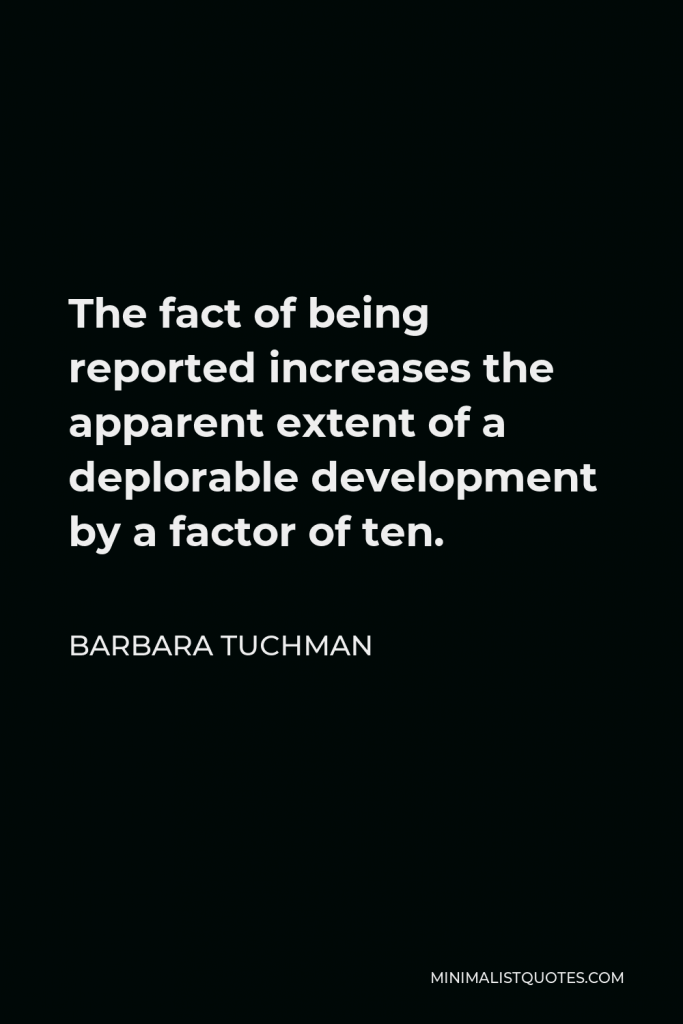

The fact of being reported increases the apparent extent of a deplorable development by a factor of ten.
BARBARA TUCHMAN -







For belligerent purposes, the 14th century, like the 20th, commanded a technology more sophisticated than the mental and moral capacity that guided its use.
BARBARA TUCHMAN -







One must stop conducting research before one has finished. Otherwise, one will never stop and never finish.
BARBARA TUCHMAN -






Money was the crux. Raising money to pay the cost of war was to cause more damage to 14th century society than the physical destruction of war itself.
BARBARA TUCHMAN -







Without books, the development of civilization would have been impossible.
BARBARA TUCHMAN -







An essential element for good writing is a good ear: One must listen to the sound of one’s own prose.
BARBARA TUCHMAN
